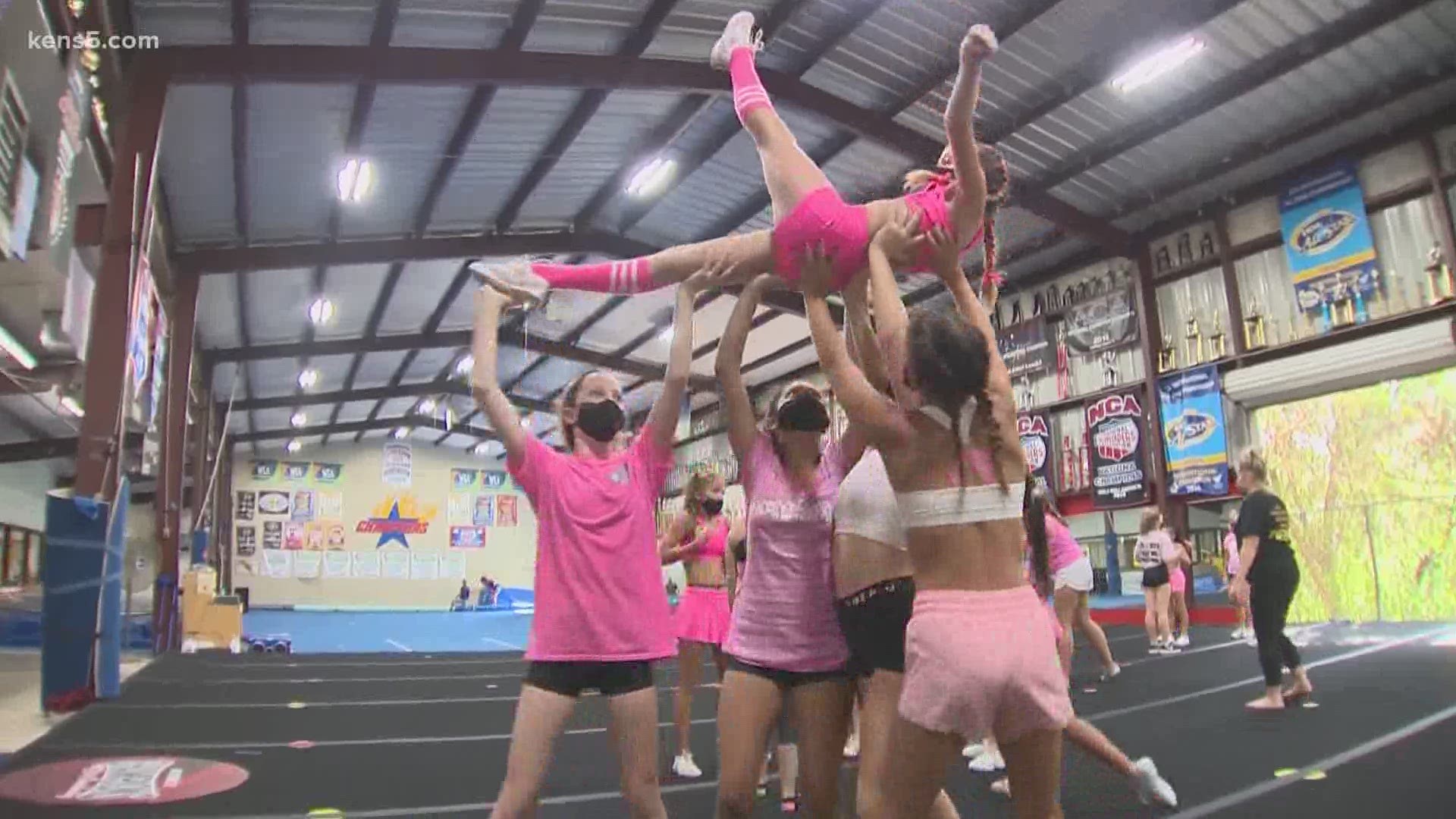SAN ANTONIO — Learning routines at Champions Cheerleading look a lot different these days during the coronavirus pandemic, but coaches say the athletes are keeping their spirits as high as possible.
"They're so strong — stunting in masks, some tumble in masks, but to stunt and the amount of physical activity from our little to our bigs," Wendy Geramita said. "They want to do it so bad they’re gonna wear their masks so they can get in here and get their workout in."
Behind the scenes, though, there are still challenges — and uncertainty.
"We don’t get included when they say, that can open, this can open. They don’t say, cheerleading gyms," Keith Geramita said. "Youth sports — they’re usually talking about football, baseball, not in a facility. So we have to take the rules, figure out how we fit into them and adjust."
Twenty three years in business gave Wendy and Keith Geramita a base to work from, and they recently paid off their gym. It was one financial relief, but not one they had much time to celebrate. Changing so much, with no clear picture of what's ahead, hasn't been easy.
"No ma’am. Away from the camera and when we get home and decompress for the days, that’s when we talk and there are tears, and heart heavy discussions," Geramita said. "Questioning, are we doing it right? Our customers tell us yes, but will we sustain with the numbers we’re running?"
They say they know precautions are needed, and that they're putting safety first. They say they held some virtual practices, nixed normal workouts and are keeping athletes apart when they aren't actively learning stunts.
"I painted the feet on the sidewalk so they could stand there when waiting to come in, put in sanitizer stations," Keith Geramita said. "But it was a slow draw back in."
But they aren't sure whether caps on capacity and new costs to stay open will add up. Plus, dance and cheer competitions are still up in the air without clarity on whether travel is advisable, or whether school practices will still happen.
They believe they can make it for around four months at their current rate, with reduced capacity — but say there are still many unknowns. They hope more specific guidance and assistance comes sooner rather than later.
"Trying our best to keep them safe but allowing them to be in here and for their mental well-being and if we can do it in a safe way, we’re going to do it," Geramita said. "Limit the numbers we have in here, but try to serve as many as we can."

